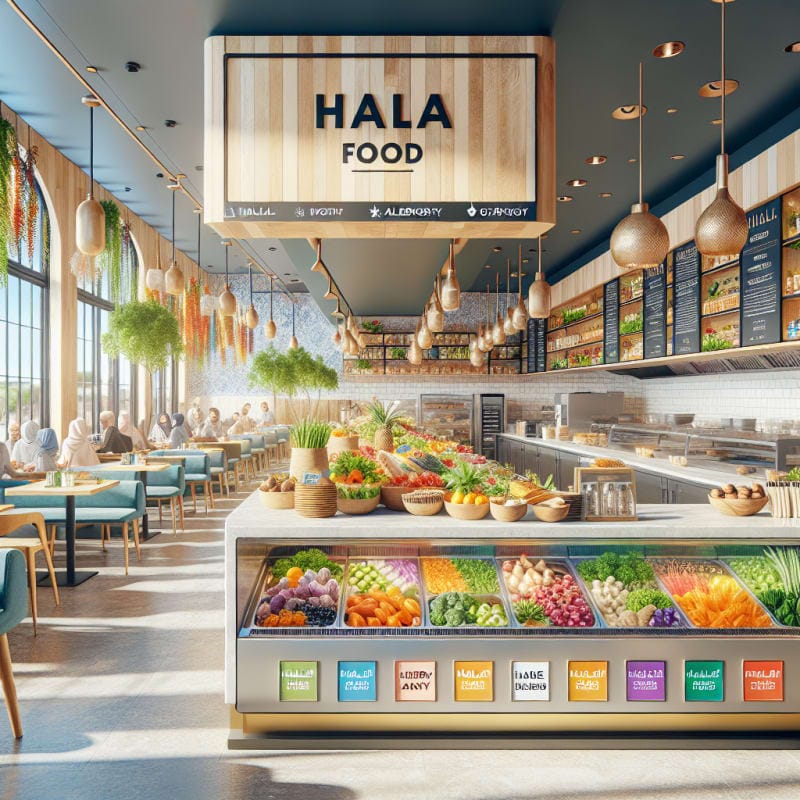Why Halal Is the Next Must-Have on Foodservice Menus
As consumers become increasingly vigilant about food ingredients, safety, and ethical sourcing, foodservice operators face new pressures to adapt. One major trend is the rapid rise of halal-certified options on menus—a shift driven by demographic changes, regulatory updates, and growing demand for transparency. This article explores why halal is emerging as a must-have, how it intersects with food safety and dietary preferences, and how tools like Food Scan Genius simplify smart food choices for everyone.
What Does “Halal” Mean in Foodservice?
Halal, meaning “permissible” in Arabic, refers to foods prepared according to Islamic dietary laws. This includes specific guidelines on sourcing, processing, and handling ingredients. Halal certification is overseen by recognized authorities and ensures compliance with religious, ethical, and food safety standards (FDA Food Labeling Guide).
| Halal Criteria | Food Safety & Ethical Impact |
|---|---|
| No pork or alcohol | Reduces exposure to common allergens and banned ingredients |
| Humane animal treatment | Aligns with rising consumer concern for animal welfare |
| Certified supply chain | Improves traceability and reduces contamination risk |
Why Halal Is the Next Must-Have: Key Drivers
- Demographic Shifts: The U.S. Muslim population is projected to double by 2050, expanding the halal market (Pew Research Center).
- Food Safety & Transparency: Halal certification requires rigorous documentation, reducing risk of foodborne illness and cross-contamination (CDC Food Safety).
- Dietary Preferences: Halal overlaps with vegetarian, plant-based, and allergen-free diets, making it relevant to a wider audience (PubMed: Dietary Preferences).
- Regulatory Trends: New labeling laws and ingredient bans (e.g., titanium dioxide in Europe) make halal certification a marker of compliance (EFSA: Titanium Dioxide Ban).
Recent News & Food Safety Alerts
Food safety remains top-of-mind for consumers and operators. Recent product recalls, such as the FDA recall of contaminated dairy products, highlight the need for robust ingredient sourcing and labeling. Meanwhile, new dietary regulations—like the FDA’s proposed changes to “healthy” food labeling (FDA News)—are reshaping how brands communicate with consumers.
Emerging food trends, such as plant-based and keto diets, are also influencing menu design. Brands like Chipotle and Panera have announced reformulations to meet clean label and ethical standards (Food Dive News). These developments impact people with food sensitivities, allergies, and ethical concerns, making ingredient transparency essential.
Halal’s Wider Relevance: Beyond Religion
While halal is rooted in religious practice, its principles resonate with broader movements in food safety, sustainability, and ethical sourcing. Authorities like the FDA (U.S.) and EFSA (Europe) increasingly recognize halal certification as a marker of quality and compliance (FDA, EFSA). For people with food sensitivities or dietary restrictions, halal-certified foods offer additional assurance about ingredient integrity.
How Food Scan Genius Empowers Smart Choices
Choosing safe, suitable foods can be daunting—especially with complex ingredient lists and evolving regulations. The Food Scan Genius app simplifies this process by instantly scanning product barcodes and flagging allergens, banned ingredients, and dietary compatibility (halal, kosher, vegan, gluten-free, and more).
User Testimonial: “As someone with multiple food allergies and a preference for halal-certified products, Food Scan Genius has been a game-changer. I can shop with confidence, knowing I’m making smart, safe choices for my family.” — Fatima S., New York
FAQ: Halal on Foodservice Menus
- Q: Is halal food safer for people with allergies?
A: Halal certification often excludes major allergens (like pork and alcohol) and requires strict traceability, reducing risk of contamination (PubMed: Halal Food Safety). - Q: How does halal certification affect menu planning?
A: It expands menu appeal to diverse groups, supports compliance with new labeling laws, and aligns with ethical sourcing trends. - Q: Can halal foods be plant-based or gluten-free?
A: Yes, halal certification applies to both animal and plant-based foods, and many halal products are also gluten-free or vegan (PubMed: Halal & Plant-Based).
Conclusion: Ingredient Transparency for Everyone
Halal is no longer a niche concern—it’s a mainstream must-have for foodservice menus. As food safety alerts, dietary regulations, and ethical sourcing trends accelerate, halal certification offers a clear path to compliance and consumer trust. By understanding ingredients and using smart tools like Food Scan Genius, everyone can make safer, smarter food choices—whether for health, ethics, or personal preference.
References
- FDA Food Labeling Guide
- EFSA: Titanium Dioxide Ban
- PubMed: Dietary Preferences
- PubMed: Halal Food Safety
- PubMed: Halal & Plant-Based
- Pew Research Center
- CDC Food Safety
- FDA Recalls
- FDA News
- Food Dive News





